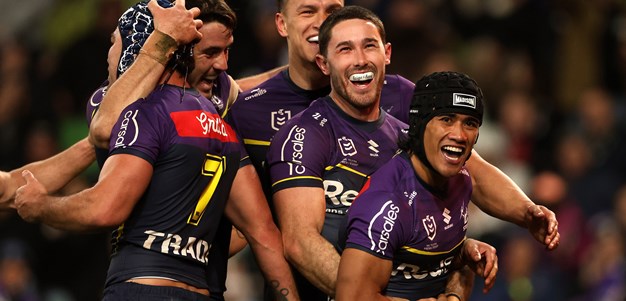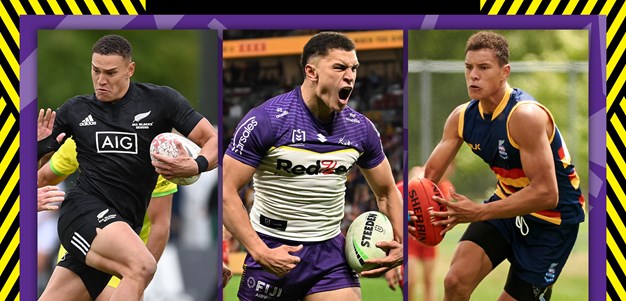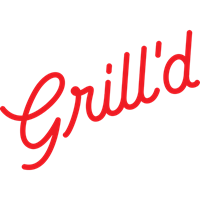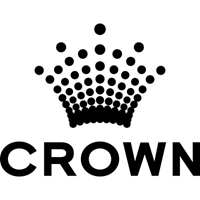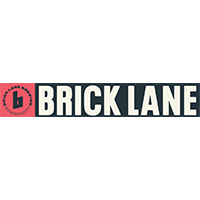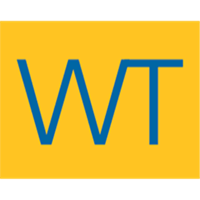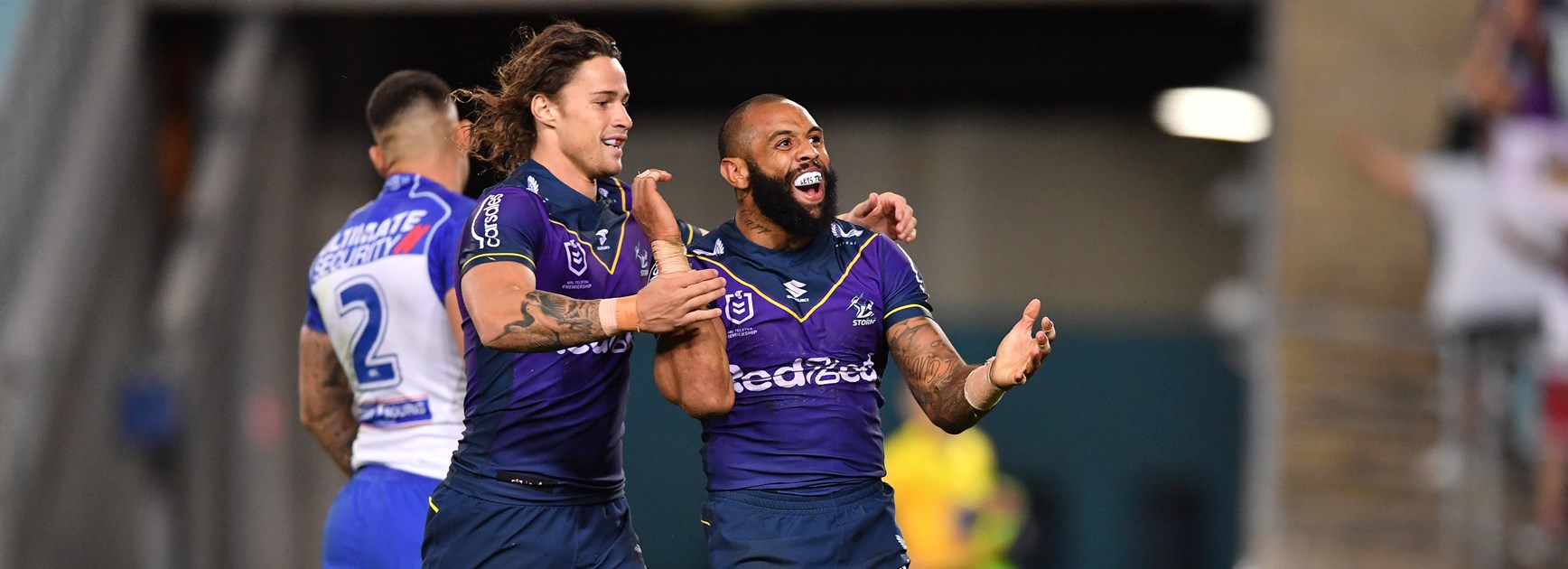
Melbourne’s inaugural ball boy Marc Brentnall, Craig Bellamy’s son, Aaron, and club legend Billy Slater have been credited with helping to transform the Storm into the NRL’s most potent attacking team.
Often maligned for their role in the widespread adoption of wrestling tactics to slow the play-the-ball, the Storm have adapted best to rule changes introduced to encourage free-flowing play and the trio are behind the transition.
ARLC commissioner Wayne Pearce, who was behind the introduction of the six-again rule when the 2020 season resumed from a COVID-19 break, said the success of the Storm demonstrated that some teams had simply adapted better.
Melbourne GM of football Frank Ponissi said Brentnall, Aaron Bellamy and Slater had been the main archictects of their transformation.
"Those three deserve the accolades, especially for the way that our back three and our edges attack."
Hynes carves the Roosters up from a kick
The Storm are averaging 36.5 points per match in 16 games this season and are on track to surpass the 839 points scored by Parramatta in 2001 – the most of any team in premiership history.
However, Ponissi said there had been no "lightbulb moment" when Bellamy and his coaching staff decided to make dramatic changes to Melbourne’s attacking style, and it had evolved over the past 12 months.
Brentnall, whose father Greg – the former Bulldogs, Blues and Kangaroos fullback – was a Storm foundation staff member, is responsible for the team’s attack, while fellow assistant coach, Stephen Kearney, focuses on defence.
Munster and Addo-Carr catch the Roosters out
A former Storm ball boy and junior, who played halfback for Norths Devils in the Queensland Cup before joining Melbourne's coaching ranks in 2013, Brentnall has been touted as a successor to Craig Bellamy when he finally hangs up the clipboard.
Aaron Bellamy, who has been on the Melbourne coaching staff since 2016, is a development coach and works closely with Brentnall, while Slater has input in his role as a coaching consultant.
The most significant change at the Storm this season has been the retirement of captain and hooker Cameron Smith but the loss of arguably the most influential player of the modern era hasn’t impacted on the club’s performances.
Harry Grant and Brandon Smith have been sharing the dummy-half duties and the squad is largely unchanged from the one which won the 2020 premiership.
"The way that Harry and Brandon attack compared to Cameron was a big focus of ours in the off-season, but it has otherwise just evolved over a period of time," Ponissi said.
"We were pretty dependant on three players [Smith, Slater and Cooper Cronk] for such a long period of time, so we probably charged to suit the players we had as well as the rules.
"I would say that all of last season we just continually adapted and made changes according to the rules. We had to learn on the run and make subtle changes as we went."
We had to learn on the run and make subtle changes as we went.
Frank Ponissi
The Storm have always been a good attacking team, scoring more than 600 points in four seasons between 2006 and 2019 – a feat achieved by other clubs on just eight occasions during an era when wrestling gained prominence.
Prior to 2006, the top teams regularly exceeded 600 points per season and Parramatta (2001, 2005), Newcastle (2001, 2002), Canterbury (2003, 2004), Sydney Roosters (2004) and the Storm (2001) scored more than 700 points.
Perhaps what the recent blow-out scorelines have highlighted is that teams like the Storm didn’t rely on wrestling to control the ruck as much as other clubs who have struggled since the introduction of the six-again rule last year.
A graphic produced by the @NRLfanalytics Twitter account last week showed 45% of games this year were decided by 19 points or more – a significant increase on previous seasons.
Pearce believes teams need to focus on getting used to the rules rather than complaining about them.
"Some clubs like the Storm have adapted really quickly, and they are the ones that are successful. Others haven’t at the moment, so for them it is probably a work a progress," Pearce said
"You can have whinge and complain, and blame external factors like the speed of the game, or you can choose to focus your energy on what you need to do to be competitive and utilise the changes in terms of tactics and playing style.
"A lot of it has to do with the clubs and their rosters and some clubs might have got caught a bit short because their players aren’t as suited to the changes in terms of agility or speed or skill.
"That is the free market that we operate in. You have got to adapt to the way the game is evolving.
"We got into a space where the game being slowed down via the wrestle, and penalties and stoppages meant that the game was orientated around set plays but now, because it flows a lot more, there is a lot more scope for the off the cuff-style players."
Pearce noted that complaints about wrestling tactics, which dominated the game for more than a decade, have all but disappeared.
The playmakers set to take charge in State of Origin III
"It is amazing the difference it has made," he said.
"Now some people are saying the game is a bit too fast.
"But do you want to lower the bar to slow the game down so we don’t see as much brilliant attacking footy and go back to bash and barge so we can have closer scorelines for those clubs that haven’t stepped up to the plate?"

